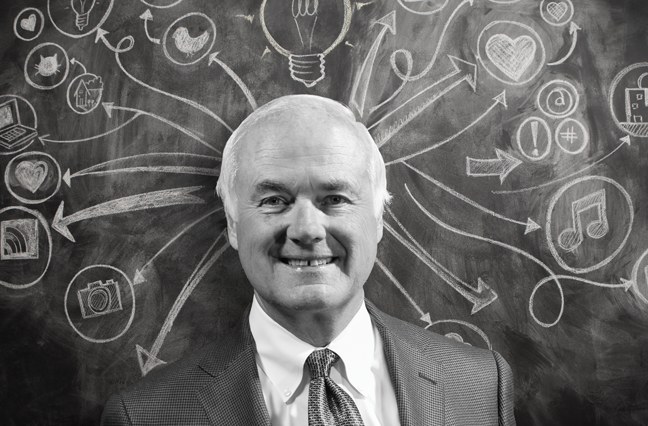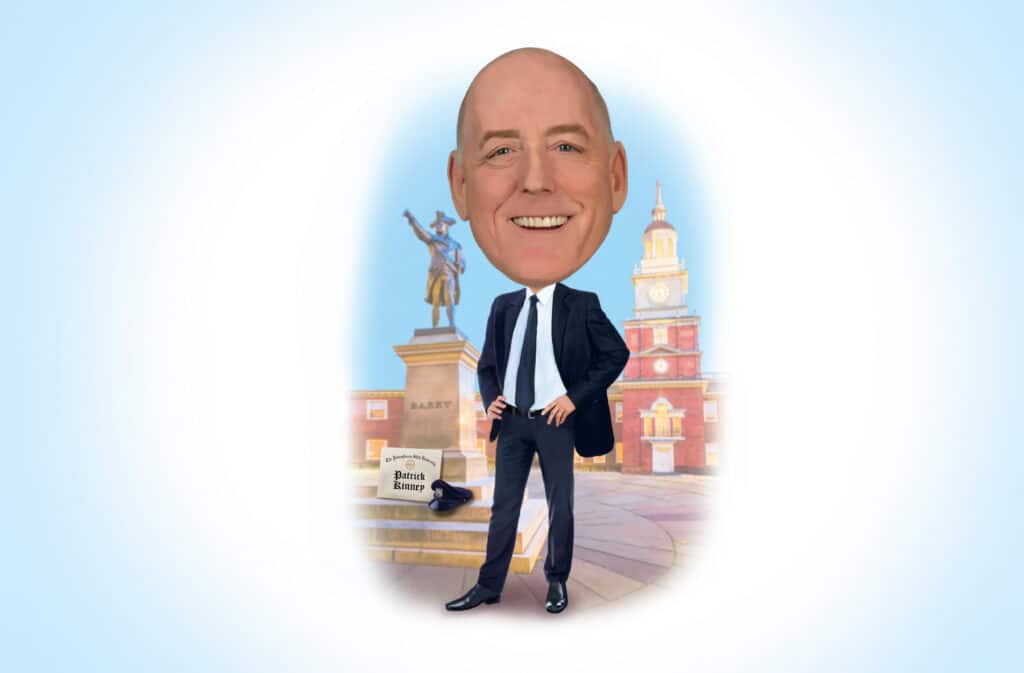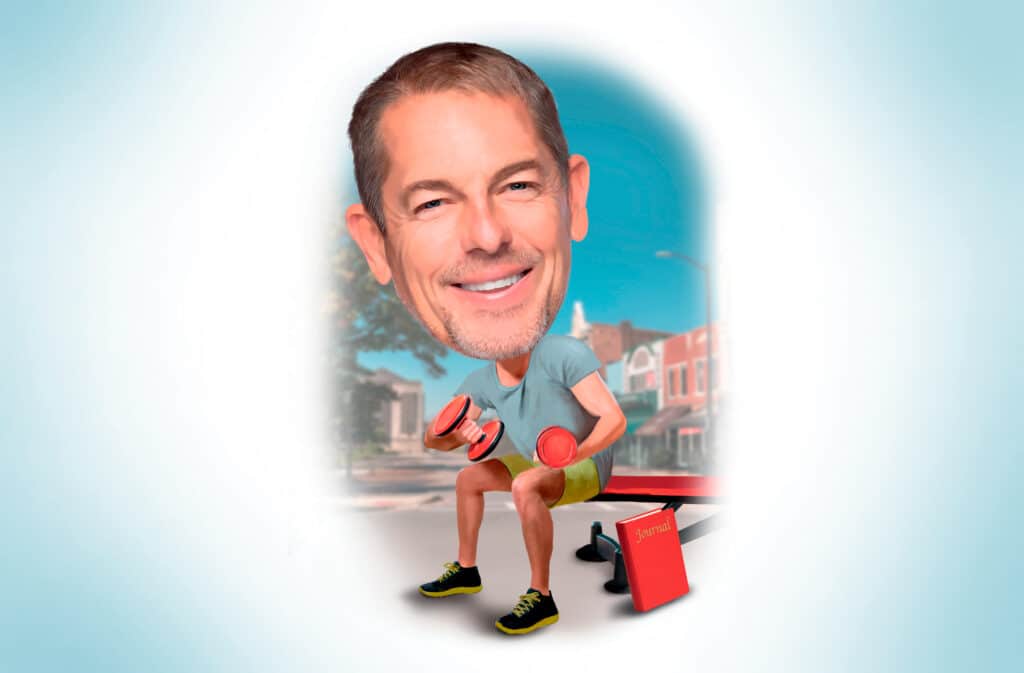
When the Sky Is Falling, Bill Henry Sees Opportunity

If you call Bill Henry a Pollyanna, he won’t tell you you’re wrong. He’s too nice for that.
He’ll just offer a little clarification, as he did for one of the early directors of McQueary Henry Bowles Troy, the Dallas-based insurance agency of which Henry is CEO.
“If you are a Pollyanna, you wish and hope for the best,” says Henry, who is 68. “If you are an aggressive Pollyanna, you expect the best and go out and make that happen. I explained to him that I was the most aggressive Pollyanna he had ever met.”
That may be the best summary of Henry’s 43-year insurance career, which began in 1972, when Henry was 25. Texas Employees Insurance Association, the state’s dominant workers compensation insurer at the time, hired him to sell to Fortune 500 accounts across the Northeast—no matter that he had zero insurance experience. Eleven years later, he left a great job to open an agency with his boss and mentor, Joe McQueary, starting with nothing but a folding table, a file box and a borrowed office. “I don’t know if that was being a Pollyanna or just pure stupidity,” Henry says, laughing at the recollection.
In fact, it proved to be a pretty smart move. Texas Employers, as his old company was known, collapsed in the wake of a statewide workers comp crisis. In contrast, until MHBT’s sale to Marsh & McLennan Agency in June, his agency was one of the top 50 privately held insurance agencies in the country. Henry is now preparing to take the helm as chairman of The Council of Insurance Agents and Brokers.
“He will be an excellent leader for The Council because of the respect people have for him and his organization and because of the energy and passion he has for our industry,” says Bobby Reagan of Reagan Consulting, an agency advisory firm.
You can point to many reasons for Henry’s success and, by extension, MHBT’s. He’s a recognized business strategist and financial whiz who built his agency by crafting creative solutions for high-risk clients and charting a course to successfully compete against national brokerages. But what most sets Bill Henry and his firm apart is a culture that has become a recruiting magnet for employees, clients and merger partners. Henry didn’t do it alone; he has, by design, surrounded himself with people just like him.
He calls them PLUs: “people like us.” He’s not necessarily talking about white, male Christians of a certain age; MHBT strives for diversity and inclusion. “PLU really deals with values, a commitment to excellence, a lack of selfishness, a certain work ethic,” Reagan says. “If there is a discriminatory element, Bill discriminates against greed or a lack of doing the right thing for the customer.”
Spend some time considering Henry through the lenses of others and what you’ll find is a man who looks a lot like the Level 5 leaders profiled in Good to Great, Jim Collins’ iconic book on what makes companies successful.
“If I had to list the five most effective insurance agency and brokerage executives, Bill would be on that list,” says Reagan, who has consulted with MHBT and assisted with the merger that brought together McQueary & Henry and Bowles/Troy in 1996.
What makes him good? “He has a unique combination of being highly driven—it’s pretty amazing how hard he works—yet very humble and not self-focused,” Reagan says. “He is an encourager. He wakes up every day energized, excited and focused on making things happen. He is always dreaming and looking at opportunities. It’s also his ability to have not only a vision for where they want to go, but the ability to execute on it. This is where he really sets himself apart.”
Henry’s faith is a driving force in the way he and his partners run MHBT.
“I really have always felt like our agency was a ministry in the way we treat people, both internally and externally,” Henry says. “Sharing your faith is more about the way you act and treat people. People pay more attention to the way you do things than what you say.”
There are times when the best thing for a client or employee is not the most lucrative for the firm in the short term, but this approach has paid many dividends for MHBT over the long term.
“From day one, we say we’ve had an angel on our shoulder,” Henry says. “The way we treat people has helped us bring in producers and staff because they know they will be working in an environment where there is absolute integrity…and we won’t ask them to do anything that goes against their principles and morals. I think it’s the same with accounts. People see the way we do business, and they are drawn to those kinds of ethics.”
MHBT has passed up producers with $2 million books of business because they didn’t meet Henry’s high standards for dealing with people. The first test of character takes place over lunch or dinner at a restaurant. “If they treat me like a king and treat the waiter or waitress with disrespect or if they are rude, they will probably treat fellow workers that way, and they won’t have a place in our company,” Henry says. “It’s important to me that the people who work here—from the entry-level person to the most senior person—will be treated with dignity and respect.”
That’s what attracted Brenda Smith as she considered merger partners for Mims & Smith, her agency in Midland, Texas. On Sept. 11, 2011, 62-year-old David Mims, the third-generation owner of the agency, died after an 11-year battle with cancer, leaving Smith—an employee since 1989 and partner since 1999—the sole owner without a perpetuation plan.
It was no secret that when Mims passed away Smith would face crucial decisions about the future of the agency. As national and regional brokerages courted her with substantial offers, Henry, who had good reason to be interested in the firm, seemed to have no agenda other than getting to know Smith. They’d meet for dinner once or twice a year when Henry visited Midland on business.
“Bill Henry wants to know people,” Smith says, “and he makes his decision based on whether this is someone he can see himself in business with every day. It was clear that was more important than any business deal.”
In January 2014, Mims & Smith Insurance Associates became a division of MHBT. Once they decided to partner, Smith spent much of 2013 patiently negotiating the details with MHBT executives, working closely with its president, Dan Browning, and COO Robert Smith.
“I could have made more money with any of the other suitors that were calling on me,” Smith says. “But that’s the value I saw in Bill Henry and MHBT, because it’s so important that you can do business together and feel they will treat your people the same way you did and that your basic goals are the same.”
A Texas Star
If you want to know where Bill Henry developed his work ethic, take a ride 180 miles northwest of Dallas to Vernon, Texas, a town named—depending on who you talk to—either for George Washington’s Mount Vernon home or a traveling whiskey salesman named Vernon Brown. Henry grew up there in typical small-town bliss, riding horses and playing endless games of baseball. His mother, Hazel, took care of the four kids. His dad, Robert, marketed the local grain elevator to farmers and ranchers.
All that changed when Henry was a senior in high school. The grain elevator was sold, and there went his father’s good job and the family’s fortunes. And that’s where Henry learned the real meaning of work: His father left the house at 4 a.m. every day to deliver newspapers 60 miles away in Childress, Texas, before returning home to deliver mail, work in a men’s clothing store and serve as VFW post commander at night. His mother went to work in the city water and light office.
“When he lost his job,” Henry recalls, “it was all hands on deck.”
During high school, Henry worked alongside his father at Cy Long men’s store. He also vaccinated turkeys. He spent summers plowing the historic Waggoner Ranch, at 800 square miles the largest ranch under one fence in the United States. (The ranch recently went on the market for $725 million.) He earned 73 cents an hour for the 12-hour days, seven days a week. To pay his way through Texas Technical University, Henry stocked and sacked groceries at a Lubbock store.
After years of playing baseball in high school and in the American Legion league, Henry had a shot playing for a semi-pro team the summer after his sophomore year at Texas Tech. But he gave it up after just a couple of games when he fell head over heels for the woman who had been one of his best friends from early childhood.
Growing up, Cheryl Wright dated two of Henry’s cousins, and he dated her best friends. They never imagined that they would end up together. Before the summer was over, Henry knew he wanted to marry her, but it took another five years before he could afford it.
In 1972, two years out of Texas Tech, Henry was still trying to figure out what he was going to do with his life. At this point, he was selling real estate investments near the site of the future Dallas/Fort Worth International Airport. “I was working with my high school Latin teacher,” Henry recalls, “and I was starving to death.”
One of Henry’s real estate prospects, an insurance consultant, introduced him to McQueary, who ran national accounts for Texas Employers. Inexplicably, McQueary put Henry in charge of national accounts in the Northeast. “I was 25, soon to be married, had no insurance experience and talked like a West Texas Texan,” Henry says. “He hired me anyway.”
The two became best friends. When McQueary was promoted to run the Houston region, Henry was given his job running national accounts. Recounting the promotion, he says, “They were really out of their mind doing that.”
Five years later, upon being promoted again, McQueary was told he would be the insurer’s next president. Henry’s star was sure to rise with his mentor’s but for one thing: McQueary confided that he hated what he was doing and wanted to get back to working more closely with customers. Then McQueary popped the question: If he left Texas Employers to start an agency, would Henry join him?
“I was 35 at the time, my kids were young and I had a lot of options making more money if that didn’t work out,” Henry recalls. “He was eight years older and was told he’d be the next president. It took a lot of guts for him to leave, but I’m glad he did.”
From the day McQueary & Henry opened for business in February 1983, the partners met for breakfast at 6:30 a.m. six days a week to plot their course and divide the work. But then tragedy struck: On Feb. 24, 1987, at the age of 48, McQueary had a heart attack and died in a customer’s office. Henry was in Hawaii on business, a trip that McQueary had backed out of at the last minute. The day before Henry left on his trip, the men signed the buy-sell agreement that had been sitting on their chief operating officer’s desk for six months.
Henry, although devastated by McQueary’s death, continued to build the agency’s reputation for placing workers comp coverage for the toughest risks at a time when the market was in crisis. Plummeting workers compensation premiums couldn’t keep up with uncontrollable claims after a 1980s oil bust and subsequent bank failures sent the unemployment rate soaring. As insurers cut back their writings and threatened to leave the market entirely, many businesses struggled to find coverage and were relegated to a burgeoning residual market, whose deficits were decimating the last writers standing.
Taking the Industry by the Horns
Henry gets a great deal of credit for his role in stabilizing the market. He sweet-talked carriers into staying in the market longer than they should have and convinced lawmakers of the need to pass reforms that ultimately turned the system around.
“There were only one or two people in the state who had a grasp of the issues and the ability to communicate the problem on behalf of clients,” recalls MHBT vice chairman Donald Bowles, who was then heavily involved in the issue as a future president of the Independent Insurance Agents of Texas. “Bill was critical, in my opinion, to getting the reforms passed.”
Those reforms—which increased worker benefits but diminished the role of lawyers—were not a panacea, but they saved the system and opened the door for further reforms that have resulted in what is probably the most competitive state in the country for workers comp.
Henry has a knack for taking challenging situations and turning them into opportunities. Even when the Texas workers comp market was spinning out of control, his business—while severely threatened by the dysfunction—actually came out on top.
He worked to raise the safety profile of the riskiest businesses with aggressive safety programs. With better risks, McQueary & Henry could keep most of its business in the standard market while most other agencies were putting their accounts in the assigned risk pool. “We ended up growing like crazy,” Henry says.
Before McQueary’s death, the partners crafted an extraordinary solution to the nation’s biggest workers comp problem: a lack of coverage for workers under the U.S. Longshore and Harbor Workers’ Compensation Act, which provided generous benefits and suffered huge losses.
McQueary & Henry reached out to Charles Taylor, an esteemed insurance manager in London, to create a captive to provide coverage for several Houston stevedore companies. When two of the firms lost their coverage, the 12-month timeline for getting the business up and running was compressed to two months. In 1986, its first year, Signal Mutual had five members and $3 million in premium. Last year, it had 215 members and more than $200 million in premium, making it the largest writer of longshore coverage.
“When the sky is falling,” Bowles says, “Bill is looking for the opportunity.”
Bowles and Henry knew each other by reputation, but their relationship grew closer in the years after McQueary’s death. The late David Hales, a well-known agency consultant for whom Bobby Reagan worked, was trying to convince them of the benefits of a merger. “Dave would bring us together and say, ‘Guys, do you not see what I see? There are large regional firms who can compete toe-to-toe with national firms, but that doesn’t exist in Dallas,’” Bowles recalls.
The two firms, the largest in Dallas, were growing profitably, so they took their time making a decision. Nine years after his partner died, Henry merged his firm with Bowles/Troy. And though McQueary was Henry’s partner for just four years before his untimely death, his name remains first in the combined firm.
“He was my mentor and my best friend,” Henry says, “and we kept his name in our name to honor him.”
As the firms came together, they made strategic investments to match the capabilities of national brokers. Their first joint hire was a directors and officers liability specialist from Chubb; the second was a risk manager from the oil services industry who built a top-notch loss control and claims management operation.
“It’s been by far the best business decision either of us made,” Bowles says of the merger.
When they merged, they had about 70 employees and $9 million in combined revenue. MHBT closed out last year with 320 employees and $75 million in revenue, making it the largest locally owned insurance agency in Dallas and second-largest in Texas.
Spreading the Wealth
Even all those years after he stopped playing semi-pro baseball to spend time with his true love, Henry hasn’t lost his passion for America’s pastime. When he turned 50, his partners sent him to the Texas Rangers fantasy camp for several days. Perhaps the bigger thrill was getting an ownership stake in the Frisco RoughRiders, the Rangers’ Double-A affiliate, when the team was sold last year.
Scott Sonju, the longtime president of the team (and son of Norm Sonju, who brought the NBA Mavericks to Dallas in 1979), met Henry when he tried to pitch MHBT on sponsoring an event for employees, and they struck up a friendship.
“It was very clear he is extremely passionate about baseball, and he knows more than most sophisticated fans,” Sonju says. But more than Henry’s considerable knowledge about the finer points of the game, Sonju was impressed with his charitable spirit. When Henry learned Sonju served on the board of a nonprofit adoption agency, Henry made a generous donation. And when Sonju’s parents were honored for their work with a private Christian school that serves poor kids in West Dallas, Henry showed up at the event and later sent him a text with heartfelt comments about his family.
“As I spent more time with him, I saw him as the type of person I’d want to emulate,” Sonju says. “He’s a humble man and someone who wants to do good in the world. I knew when the time came to put together a group to buy the Frisco RoughRiders, he was on my short list of great limited partners.”
And, not incidentally, MHBT, which previously wrote one line of insurance for the team, now writes all of it.




